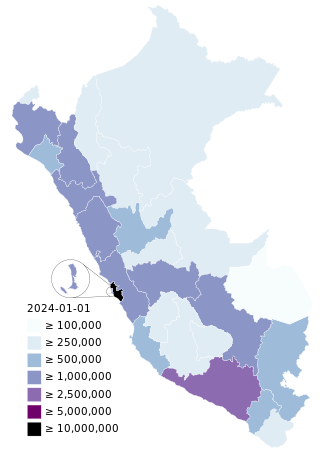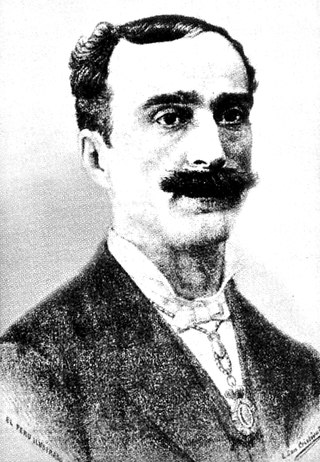
The Pan American Health Organization (PAHO) is a specialized agency of the United Nations (UN) in charge of international health cooperation in the Americas. It fosters technical cooperation among member countries to fight communicable and noncommunicable diseases, strengthen health systems, and respond to emergencies and disasters.

Donald Ainslie Henderson was an American medical doctor, educator, and epidemiologist who directed a 10-year international effort (1967–1977) that eradicated smallpox throughout the world and launched international childhood vaccination programs. From 1977 to 1990, he was Dean of the Johns Hopkins School of Public Health. Later, he played a leading role in instigating national programs for public health preparedness and response following biological attacks and national disasters. At the time of his death, he was Professor and Dean Emeritus of the Johns Hopkins Bloomberg School of Public Health, and Professor of Medicine and Public Health at the University of Pittsburgh, as well as Distinguished Scholar at the UPMC Center for Health Security.
Abram Salmon Benenson was an authority in public health, preventive medicine, military medicine, and "shoe-leather" epidemiology. He was best known as the editor-in-chief for the Control of Communicable Diseases Manual of the American Public Health Association. His tenure as editor was so lengthy that the manual was often known as the "Benenson Book".
Sociedad Académica de Amantes del País was a society established in Lima, Peru in 1790 for the purpose of discussing national matters.
Ponduri Venkata Ramana Rao was an Indian microbiologist. He was born at Rajupalem in Ongole district, Madras Presidency, British India.

Federico Villarreal National University is a public university located in Lima, Peru. It was named in honor of the Peruvian mathematician Federico Villarreal.

Viktor Mykhailovych Zhdanov was a Soviet scientist, virologist and epidemiologist. He was instrumental in the effort to eradicate smallpox globally.
Naval Medical Research Unit SOUTH, formerly known as Naval Medical Research Unit Six, is a biomedical research laboratory of the U.S. Navy located in Lima, Peru. It is the only U.S. military command located in South America. Its mission is to identify infectious disease threats of military and public health importance and to develop and evaluate interventions and products to mitigate those threats.
Felipe Enrique Osterling Parodi was a Peruvian lawyer, writer and politician. He was a member and leader of the Christian People's Party, and served in senior positions in the Peruvian government.

Jesus C. Azurin was a Filipino medical doctor who was the Philippines’ Minister of Health from July 1981 to February 1986. In 1985, he was the recipient of the first Sasakawa Prize awarded by the World Health Organization (WHO) for achievements in the public health field. At the 38th World Health Assembly on May 9, 1985 at the Palais des Nations, Geneva, Switzerland, Dr. Azurin was cited for accomplishments that "have been recognized nationally and internationally". Among several specific achievements mentioned in the Award's citation were that "Dr. Azurin personally initiated and promoted a series of innovative mesures to make primary health care a reality in the Philippines", that he "reorganized the Ministry of Health in order to decentralize its activities" and "vigorously supported... community projects to bring essential drugs within the reach of the population at an affordable cost", and that he pioneered in the effort that "led to the establishment of a research institute for tropical medicine in Manila, as a support to the Ministry's programme to control communicable diseases".
Isao Arita was a Japanese physician, virologist and vaccination specialist who headed the World Health Organization (WHO) Smallpox Eradication Unit in 1977–85. During this period, smallpox became the first infectious disease of humans to be eradicated globally. He and his colleagues were awarded the Japan Prize in 1988 for this work. He also advised the successful programme to eradicate poliovirus from the Western Pacific region.
Carlos Bazán Zender was a Peruvian medical doctor and politician. He was a Minister of Health in the second government of Fernando Belaúnde Terry.
Dionicia Gamboa is a Peruvian parasitologist and professor at Institute of Tropical Medicine Alexander von Humboldt, Cayetano Heredia University. Her research focusses on Plasmodium vivax, a major malaria parasite species in South America.

The COVID-19 pandemic in Peru has resulted in 4,526,977 confirmed cases of COVID-19 and 220,975 deaths. The virus spread to Peru on 6 March 2020, when a 25-year-old man who had travelled to Spain, France, and the Czech Republic tested positive. On 15 March 2020, President Martín Vizcarra announced a country-wide lockdown, closing borders, restricting domestic flights, and forbidding nonessential business operations, excluding health facilities, grocery stores, pharmacies, and banks. As of May 2023, Peru has the highest COVID-19 death rate in the world, with over 6,400 deaths per one million citizens.

Patricia Jannet García Funegra is a Peruvian professor of public and global health at Cayetano Heredia University. She originally trained as a clinician before focusing on research and public health. Her work also focuses on reproductive health, sexually transmitted diseases, and medical informatics. In 2016-17 García was the Minister of Health of Peru. She was the first Peruvian to be elected to the US National Academy of Medicine in 2016.

Manuel Eugenio Larrabure y Unanue was a Peruvian politician, diplomat, writer, historian and journalist. He was thrice Minister of Foreign Affairs, Minister of Development and Public Works, President of the Council of Ministers and First Vice President.
Juan Carlos Hurtado Miller is a Peruvian former engineer and Fujimorist politician who served in the cabinet during the presidency of Fernando Belaúnde Terry and Alberto Fujimori in which, he served as Fujimori's first Prime Minister of Peru from 1990 to 1991 and was the Minister of Agriculture during the presidency of Fernando Belaúnde Terry between 1983 and 1985.

Vacunagate refers to a scandal in Peru over the secret COVID-19 vaccination of 487 people, mainly senior officials of the Executive Power of Peru. The crisis began on February 10, 2021, with the revelation that in October 2020 a coronavirus vaccine intended for Phase III of the Sinopharm clinical trials was secretly given to then-President Martín Vizcarra.
Julio Óscar Trelles Montes was a Peruvian physician and politician. He served as Prime Minister of Peru and Minister of Government and Police from July to December 1963, in the first government of President Fernando Belaúnde Terry. He was also Minister of Public Health and Social Assistance (1945–1946), Senator of the Republic (1980–1985) and President of the Senate (1980–1981).








